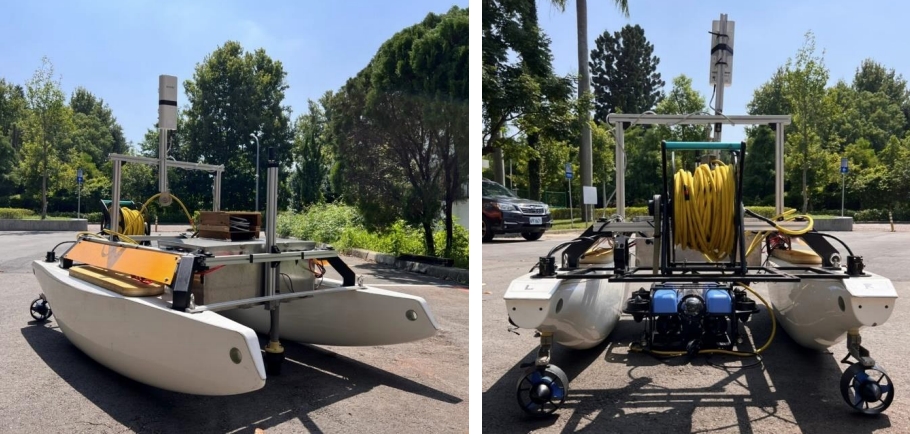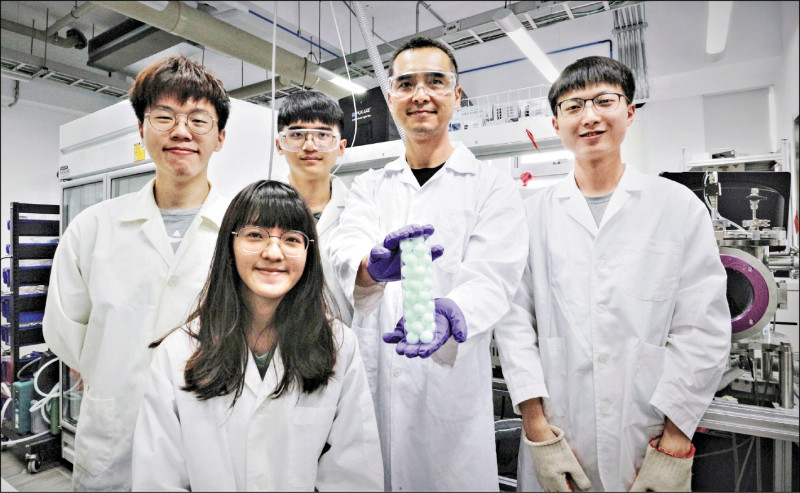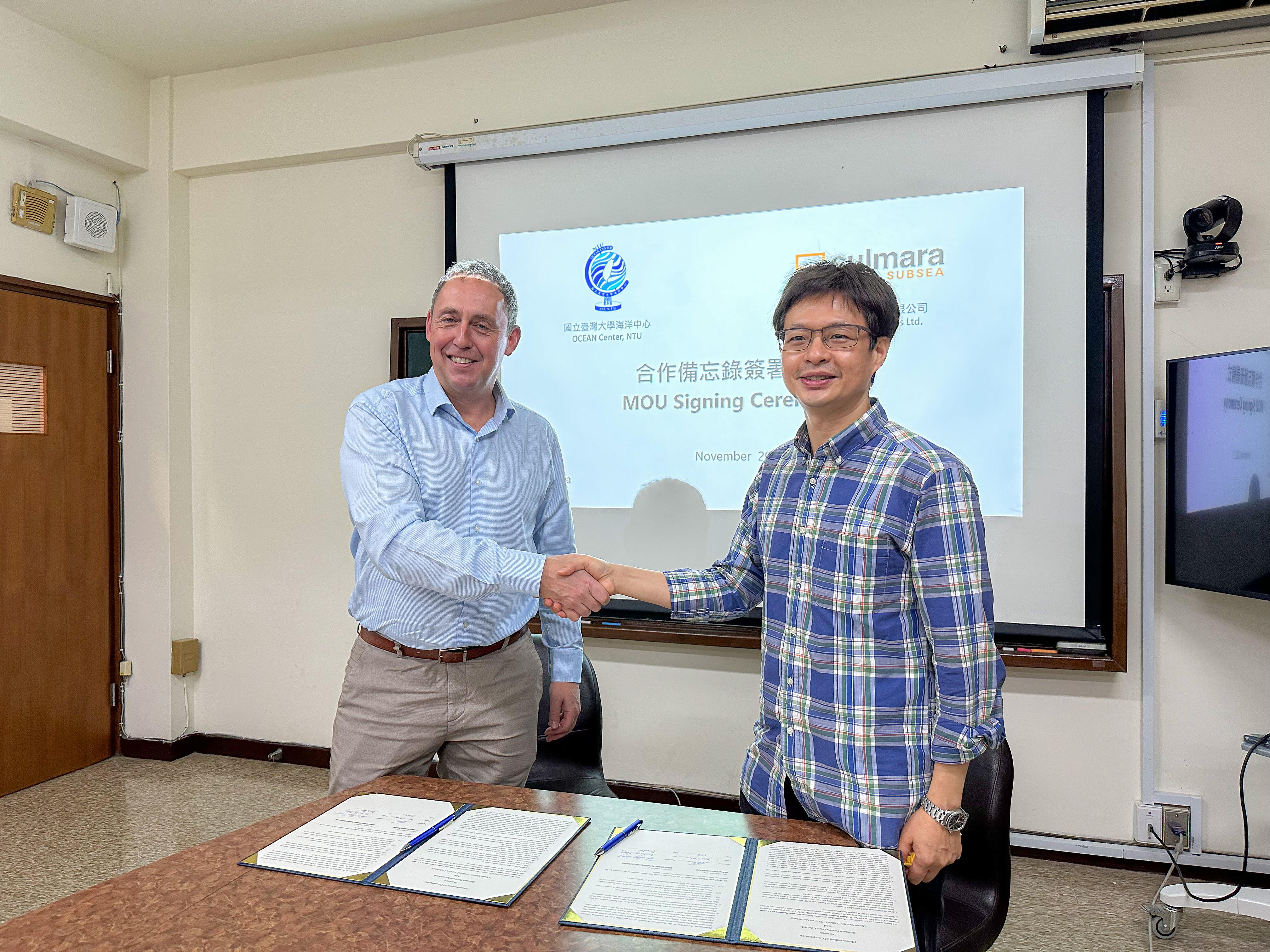NTU is committed to mitigating the technologies impact on aquatic ecosystems
National Taiwan University, in response to the decreasing impact of marine industries on aquatic ecosystems, collaborates with the Ocean Conservation Administration to explore alternative methods to human intervention for marine waste removal. We employ unmanned vessels and remote-controlled robots to enhance the efficiency of underwater waste cleanup. Additionally, our Chemical Engineering department's team has developed high-tech water filtration capsules capable of accelerating the decomposition of organic solvents, plastics, dioxins, and other pollutants in water, thus increasing water resource recovery and safe reuse rates.
In the realm of offshore wind energy development, our Ship and Ocean Technology Research Center is committed to advancing marine energy technologies while prioritizing the protection of the marine environment. Our research teams collaborate with floating wind turbine manufacturers to form design teams that create optimal and environmentally friendly floating wind turbines. Furthermore, we cooperate with renewable energy companies and employ environmental monitoring to minimize the impact of offshore wind farms on aquatic ecosystems.
Feasibility Assessment of Alternative Diving Methods for Underwater Waste Cleanup
Traditionally, the removal of marine waste has relied on human divers, which presents limitations and high risks due to the challenges of underwater operations. Moreover, the cost of such operations at sea is considerably higher compared to land-based activities. In an effort to address the issue of marine waste and considering the constraints of human intervention, our research team at National Taiwan University has undertaken practical initiatives using small-scale twin-hulled unmanned vessels and underwater remotely operated vehicles (ROVs) to enhance the efficiency of underwater waste cleanup.

High-tech Water Filtration Capsule Improves Efficiency of Industrial Wastewater Treatment
The research team from our Department of Chemical Engineering at National Taiwan University has developed a groundbreaking technology known as "Gas-Phase Deposition Process for Creating Multifunctional Water Filtration Devices." These devices, no larger than capsules, contain environmentally degrading bacteria and are constructed using highly biocompatible materials. They stimulate the production of a significant amount of active enzymes by bacteria, thereby accelerating the decomposition of organic solvents, plastics, dioxins, and other pollutants in water. This innovation leads to a substantial improvement in water quality and enhances the recycling and safe reuse of water resources.

NTU Green Energy Technology: NTU Floating Platform
Our university, in collaboration with Taiwan International Shipbuilding Corporation (CSBC) and Ship and Ocean Industries R&D Center (SOIC), has formed a design team. Together, we have developed a floating wind turbine platform designed in a way that does not harm aquatic ecosystems.
Collaboration with Renewable Energy Companies to Reduce Offshore Wind Farm Impact on Aquatic Ecosystems
Our university has signed a memorandum of understanding with the British company Sulmara Subsea to initiate new cooperation in Taiwan's offshore wind energy industry. This collaboration focuses on academic-industry partnerships and talent development, leveraging the advanced technologies in underwater geological exploration from both sides and the abundant geological data available in the Taiwan Strait. Through environmental monitoring, we aim to minimize the impact of offshore wind farms on aquatic ecosystems.







